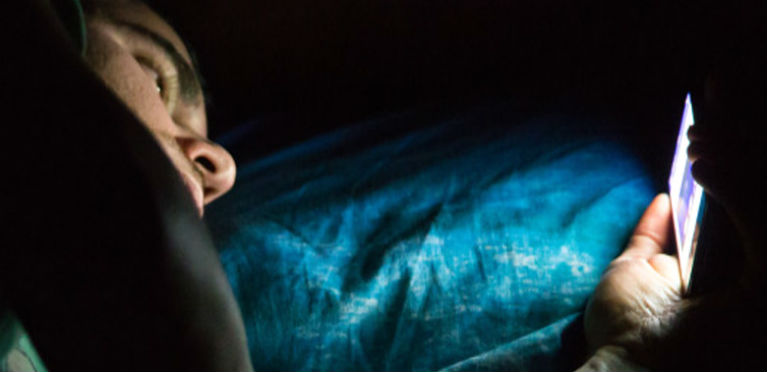You are probably aware of the fact that being exposed to a screen light before going to bed can seriously disrupt your sleep, but what you probably don’t know is that reading on a screen can bring even more dangers to your health.
According to a new research from Brigham and Women’s Hospital in Boston, Massachusetts, published in the Proceedings of the National Academy of Sciences, using an iPad before bedtime directly affects your alertness for the next day. Of course, the research once again confirmed that using a mobile device late at night makes harder to fall asleep too. The results were the same for those using laptops, eReaders, smartphones and similar mobile devices before bedtime.
This is not the first study in this field.
According to Dr. Anne-Marie Chang an associate neuroscientist at the previously mentioned institution who was part of the team conducting the research, artificial light from electronic devices affects alertness, sleepiness and reduces the levels of melatonin. What is interesting is that this research was based on comparison between reading printed books and reading from a device that emits artificial light.
Those who want to use the night to reenergize their body, but must read something before bedtime should definitely use a printed book and forget about screens as a source for reading. Dr. Chang says that sleep is crucial for our health, because poor quality sleep can lead to some serious health issues like diabetes, obesity and even some cardiovascular diseases and disorders. The suppression of melatonin production was linked with increased risk of certain types of Huffpost.
We should also not forget that sleep comes with many benefits too.
The two-week study involved 12 participants who read on an iPad for hours before they go to bed five days in a row. After that, they’ve read printed books five days in a row. Some of them started with reading printed books and finished the study with reading from an iPad.
The results were clear. Those reading on an iPad had troubles falling asleep, they felt energetic at night and the length of their REM sleep was very short compared to those who were reading printed books. iPad readers also felt tired and distracted the following day although they had an eight-hour sleep.
So, reading on a screen before bedtime should not be an option, but people who need to check something on their mobile device late at night can do this in a safer way. The main reason for the negative effects of screens was located in the blue light emitted by the screen. So, placing a physical filter for iOS devices or using a special Android app that acts like a filter may reduce the negative effects.
There is an app specially designed for computers called F.lux.
Dr. Chang confirms that the best option is to completely avoid using light-emitting screens before you go to bed and their study has also confirmed that certain filters for blue light can be helpful.

